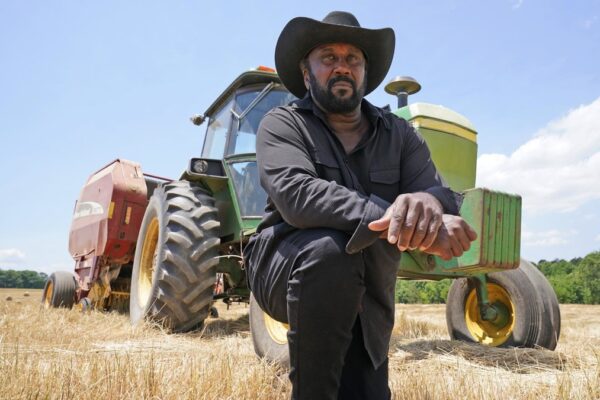America’s Black farmers are at risk of losing their livelihoods, a key figure in the Black agriculture industry told Atlanta Black Star.
The American Rescue Plan Act earmarked $4 billion in debt relief payments for “socially disadvantaged” farmers last March, but a court battle has suspended the disbursement of the money. White farmers sued the U.S. Department of Agriculture to stop the program, claiming it discriminates against them, which is reverse racism.

National Black Farmers Association president, John Boyd Jr. said farmers who were waiting on the funding for debt relief are receiving delinquency letters for the USDA loans they used to finance their farms. It is hindering them from borrowing other money to cover their expenses amid inflation and shortages.
Boyd is calling on President Joe Biden to intervene. He said the president promised Black farmers a meeting last July, but Biden’s office has yet to follow through.
“I was hopeful that the president would keep his word and come to the table and see what we may be able to do together to get around some of the stuff,” Boyd told Atlanta Black Star.
Boyd pointed out that the debt relief package only covers a tiny fraction of what Black farmers should recover after decades of discriminative policies that blocked Black farmers from borrowing money and repossessed their land. According to a May report by The New Republic, Black farmers lost $326 billion worth of land between 1920 and 1997.
“This is wrong what the government is doing to us. I don’t care if you’re Republican or Democrat or Independent. You know wrong is wrong, and I was one of the first people to support President Biden,” Boyd said. “We’re not getting what we need from the administration right now, and that’s just not good from a group of people who overwhelmingly supported you and voted for you.”
Biden received 92 percent of the Black vote in the 2020 presidential election, reports show.
White farmers, in their legal complaint, contend that the program violated their constitutional right to equal protection. The relief package covers payments for Black, American Indian, Alaskan Native, Hispanic, Asian American, or Pacific Islander farmers. While the fate of the funding is tied up in court, Boyd said Black farmers are trying to find alternate ways to pay for their farms.
The USDA told farmers to continue to submit their loan payment notification letters, and the agency will process them for quick payout once the funding is released. The USDA has also halted foreclosures of delinquent borrowers, but acknowledges missing payments could be a barrier to additional lending.
“It’s almost like 40 acres and a mule,” Boyd said. “So, you promised these things to Blacks, and then we essentially chase our tails to collect it, and that’s not the way this is supposed to work,” Boyd said.
Erica Loewe, the White House director of African-American media, told Atlanta Black Star that USDA officials, the White House Domestic Council and the White Office of Public Engagement have been in constant contact with the National Black Farmers Association.
Still, the ongoing plight of Black farmers has soured the taste for the Biden administration, among others in the Black community.
Professional basketball player and reparationist Rashaad Singleton said the lack of action by the Biden administration is disrespectful to Black voters. He created a petition that has amassed 79,000 signatures. He plans to take his fight to statehouses and Capitol Hill when it reaches his goal of 150,000 signatures.
However, Singleton, who has played basketball in other parts of the globe, said he’s disappointed in the lack of support Black farmers have received from professional athletes in the U.S.
“I find it very stressful that I seem to be the only athlete talking about this. That’s what really bothers me. I’m just an overseas basketball player,” he told Atlanta Black Star. “We need our NFL players talking about this issue. We need our NBA players talking about this issue. We need our Black baseball players talking. Where the Black golfers at?”
Boyd also urged Black America to unite and lobby for the debt relief for Black farmers.
“All these guys have their Twitter accounts and social media. If you can’t give them, then speak up about it,” Boyd said. “I think that would help us, especially to let the administration know that Black America is aware of this. It doesn’t look good.”


